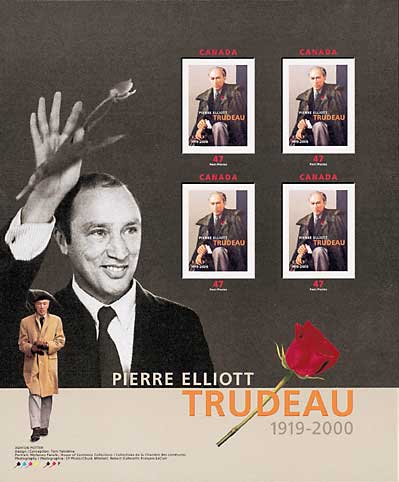On today’s date in 1980, Liberal leader Pierre Trudeau defeated the Progressive Conservative’s Joe Clark in that year’s federal election.
Less than a year earlier, Clark’s Progressive Conservatives won a minority government after overcoming Trudeau’s Liberals, which were in power for the preceding 11 years.
“Clark misfired right from the beginning,” reads The Canadian Encyclopedia.
Controversies arose after Clark decided to keep his election promise to move the Canadian embassy in Israel from Tel Aviv to Jerusalem, and the Iranian Revolution of 1979 also caused issues at home—namely with the price of oil.
“Clark’s finance minister, the very able John Crosbie, decided that it was time for a dose of reality, which he delivered in his budget – the first Conservative budget in 17 years – in December 1979,” adds The Canadian Encyclopedia. “Crosbie proposed an excise tax of 18 cents-a-gallon on gasoline, to reduce Canada’s chronically high deficit. Fiscally, it made sense; politically during an election period, it did not.”
While Trudeau resigned following his 1979 defeat, the Liberals ultimately defeated the Clark government’s budget and an election was called for Feb. 18, 1980. With no leader, the Liberal’s “party’s notables begged Trudeau to resume the mantle he had just shrugged off,” according to The Canadian Encyclopedia.
“Trudeau obliged.”
Following a brief campaign, the Liberals “scraped together a narrow majority in the House of Commons,” explains The Canadian Encyclopedia, winning 146 seats compared to the Progressive Conservative’s 103. Another 32 seats went to the New Democratic Party and none to the Social Credit Party of Canada.
“Trudeau got what most politicians can only dream of—a second chance. If he had wasted his first 11 years in power, 1968–79, on contemplation and study, this time he would act. In the elections of both 1979 and 1980, Trudeau was the definite winner.”
2001 TRUDEAU STAMP
Trudeau’s life and career as a Canadian politician was commemorated on a domestic-rate stamp (Scott #1909) – then 47 cents – issued by Canada Post on July 1, 2001.
Designed by Tom Yakobina, of Montréal, the stamp features a portrait of Trudeau by Myfanwy Pavelic. Unveiled on May 1, 1992, the portrait “shows a pensive man with a hint of a smile, confidently looking straight at his viewers,” according to the House of Commons website.
“His shoulders are draped in his trademark loden cape, and a signature red rose adorns the lapel of his blazer.”
Trudeau served as Canada’s prime minister from 1968-79 and again from 1980-84. Both charismatic and controversial, the man who caused “Trudeaumania” served at a time when the country – fresh off its centennial celebrations – was coming of age.
During his terms as prime minister, he implemented the Canadian Charter of Rights and Freedoms, the Official Languages Act and other policies including wage and pricing controls. He also appointed Canada’s first female Governor-General and the first female speaker to the House of Commons.
Trudeau died on Sept. 28, 2000.


